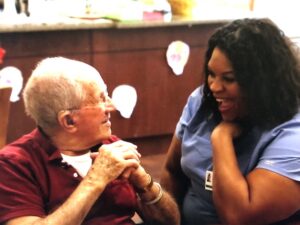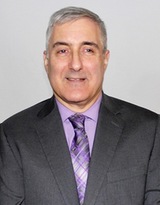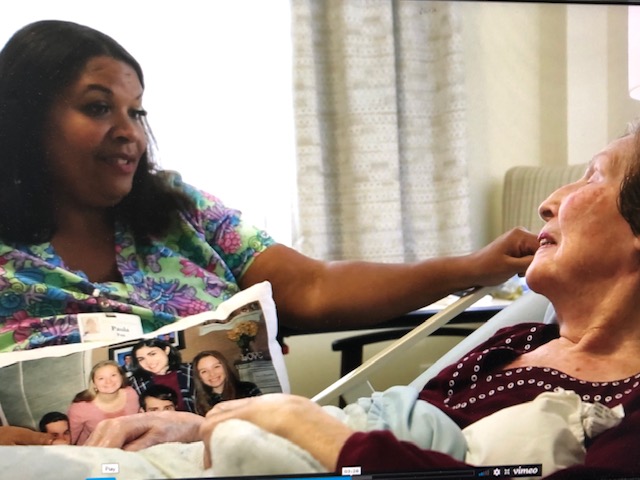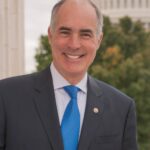Episode Description
This episode chronicles the powerful relationship between Paula Fox, a dynamic Certified Nursing Assistant who cares for 94-year-old Rose Santilli, a resident at the Jewish Home in Bridgeport, Connecticut. It also explores alternative models for skilled nursing care.
Paula Fox
 Paula Fox is a Certified Nursing Assistant at the Jewish Home in Bridgeport, Connecticut. She has been providing skilled nursing care for over 25 years. She cared for Rose Santilli for nearly four years.
Paula Fox is a Certified Nursing Assistant at the Jewish Home in Bridgeport, Connecticut. She has been providing skilled nursing care for over 25 years. She cared for Rose Santilli for nearly four years.
Diane Santilli

Diane Santilli began her career at with clubsystems group (formerly Diamond Management Systems) in 1997. As a Systems Integrator & Trainer, she traveled extensively to clients’ sites across the US, Canada, and the Bahamas, implementing, integrating, configuring, and training clubs’ management and employees on software and club operations.
In 2003, Diane was promoted to Training Department Manager and then, Senior Systems Consultant. In 2016, Diane became a Customer Care Manager, and in January 2020, was promoted to Director of Account Management. Diane retired at the end of 2021 but has been brought back as a consultant to work on various projects as well as client and staff needs. She is determined to be fully retired by June 30, 2022, as she hopes to prepare for her upcoming role starting in mid-September as a Nonna/Grandma!! She certainly had amazing role models in that area.
Vincent Santilli

Vincent Santilli is the CEO/Executive Director of ABRI/Homes for the Brave, a non-profit organization in Bridgeport, Connecticut dedicated to providing safe housing, vocational services, mental health treatment and life skills coaching to homeless individuals, almost all of whom are Veterans. Vincent is Rose Santilli’s son, and along with his sister, Diane, was an active and loving caregiver for his mother.
Rose F. Santilli

Rose F. (Tangredi) Santilli, age 94, of Bridgeport, passed away peacefully on Monday, April 19, 2021, at Jewish Senior Services with her devoted children by her side. She was the beloved wife of the late Joseph P. Santilli, whom she cherished . Rose was born in Queens, New York, on October 18, 1926. She was an avid fashion enthusiast and advisor and lived up to the phrase ”shop ‘til you drop”!
Rose worked as a real estate agent for the Mase Agency before her retirement. She was a loving and devoted wife, mother, grandmother and friend of many, and will be deeply missed by all who knew and loved her.
Survivors include her loving children, Diane Santilli and her husband Kevin Aylward of Shelton, Vincent Santilli and his wife Jeanine of Trumbull, and her cherished grandchildren and honorary grandchildren. Diane and Vincent would especially like to recognize the staff and management at Jewish Senior Services for the wonderful and heartfelt care of their mother, specifically Paula Fox and Rosemary Wright. They are so extremely grateful to for the kind, loving, and expert attention given by them as well as Nurse Lissette Amoedo and Nursing supervisor, Allison Shortell. Thank you is just not enough!

Andrew Banoff

As the President & CEO of Jewish Senior Services (JSS) over the past 20 years, Andrew Banoff has led the transformation of a nursing home into a fully integrated senior living continuum of care that provides seniors and their families a wide selection of services.
This includes the development of Weinberg Campus, now home to Connecticut’s first household model nursing home and assisted living community. The campus includes a range of home care and community-based services, family hospice, an adult day program, adult family living homes, and the Center for Elder Abuse. It also houses facilities that serve the broader community such as the Federation for Jewish Philanthropy, a fitness center and child development center.
Previously, Andrew held numerous related positions, including serving as Executive Vice President of St. Vincent’s Health Services, an acute care teaching hospital in Bridgeport; and President & CEO of Connecticut Health Enterprises, a managed care and physician practice management company. Andrew is a Fellow in the New York Academy of Medicine and the American College of Healthcare Executives. He holds a Bachelor of Arts Degree in Economics from Duke University and a Master of Business Administration Degree with a concentration in Health Care Administration from Baruch College. He has two adult children, Rebecca and Benjamin, of whom he is most proud.
Len Fishman

Len Fishman served as director of the Gerontology Institute at UMass Boston until his retirement in 2021. The Institute is the research, policy and public service arm of UMass Boston’s gerontology program—one of the oldest and largest aging studies programs in the world.
Its main areas of focus are health and health care, long-term services and supports, economic security, productive aging, and demography—with a special emphasis on low-income and BIPOC older adults. From 2000 to 2012, Len was CEO of Hebrew SeniorLife, New England’s largest non-profit provider of senior housing and health care. During his tenure, HSL became an affiliate of Harvard Medical School, serving as the School’s clinical research and academic teaching site in geriatrics. Before joining HSL, Len was president of Leading Age, in Washington D.C., which represents 6,000 non-profit senior housing and health care providers, serving over two million seniors in the U.S. and Canada. Len served in the cabinet of New Jersey Governor Christine Todd Whitman as commissioner of the Department of Health and Senior Services. For a decade prior to that, he practiced health care law in NJ and PA.
Alex Spanko – Green House Project

Alex Spanko is the director of communications for The Green House Project, a national non-profit dedicated to replacing the institutional nursing home with elder-directed alternatives, Alex is an experienced writer and editor who helped launch Skilled Nursing News (SNN), a leading industry trade publication based in Chicago, in 2017. At SNN, he developed a deep and broad knowledge of nursing home finance, reimbursement, and regulation. Alex’s work has also appeared in the Boston Globe and the Boston Business Journal.
Blog
Interview with U.S. Senator Bob Casey

In November of 2020, Senator Casey and his Republican colleague, Senator Jim Toomey released a report called Families’ and Residents’ Right to Know: Uncovering Poor Care in America’s Nursing Homes. The report was based on an investigation they conducted into the federal Special Focus Facility program, which identifies and monitors nursing homes cited for egregious problems of abuse and neglect.
Here’s an excerpt from an interview I conducted with the Senator about this program, and related bills he’s filed to improve long term care services and supports.
Mindy – Hi Senator. It’s really a pleasure to be able to talk to you. Thanks for making time to talk!
Senator Casey – Thanks. I really am grateful for the opportunity to have a discussion with someone that’s been steeped in these issues.
Mindy – Let’s start with the report that you and Senator Toomey released on the Special Focus Facility program. You documented some pretty egregious abuse within nursing homes. What happened as a result of your report?
Senator Casey – At that time, you had about 88 nursing homes nationwide who were in the Special Focus Facility program under the heading of “participants”, meaning they were subjected to more frequent reviews (or surveys) and enforcement.
Then you had a whole other group of 400 nursing homes that were in the program technically. But they were under the heading of “candidates” and they were really not in great shape. They were not the subject of additional surveys or surveying or other oversight. It just didn’t make sense that you had 400 nursing homes that were having problems (without follow-up).
So the big action the administration at the time took was to make those all those (candidate) facility names public…But obviously we need to do more work.
Mindy – You have been successful in partnering with your Republican colleague, Senator Toomey. At this point, politically, as you well know, it’s a challenge to work across the political aisle.
Senator Casey – These things come together in a myriad of ways. Sometimes it’s a conversation with a colleague. The staff also interact more on policy because that’s just the nature of being on staff. And so this was really a combination of those kinds of engagements. I would want to give credit to both staffs who came together on this.
It’s the fact that we came together, not just on a letter to the Centers for Medicare and Medicaid Services – but that we came together and produced a fairly detailed report. That’s exceedingly rare.
Mindy – After you released this report, you jointly filed a bill called the Nursing Home Modernization Act of 2021. Can you tell us about the bill?
Casey – The bill took (our report) to that next step – to enhance accountability among the nation’s poorest performing nursing homes. We must improve the quality of care in nursing homes—especially those that are consistently failing to meet health and safety standards required by the federal government. Residents in long-term care facilities deserve a safe place to live.
(Note: The bill is stuck in the Finance Committee.)
Mindy – After you filed that first bill, you filed another one, called the Nursing Home Improvement and Accountability Act.
Senator Casey – This bill is more comprehensive in its approach to nursing home care generally. And in this case, we have a bill that is introduced under Democratic leadership. I’m hoping we get some Republican support. But so far, it’s Chairman Wyden and I and the chairs of the two most relevant committees.
Overall, you could probably boil it down into a couple of words. It’s about transparency, accountability, quality. It’s also about staffing. It does have a Special Focus Facility program element to it in that we would expand the program to include up to five percent of the lowest performing nursing homes that receive targeted improvement support instead of the roughly three percent of facilities.
Senator Casey – When it comes to some issues that we’re addressing in the Nursing Home Improvement and Accountability Act, there will be support on the Democratic side only. Once you get into the realm of this reform requires new funding, meaning Medicaid dollars, that’s where it becomes a one-party exercise.
A lot of Republican politicians see Medicaid as a program to be limited and managed purely from a fiscal sense. And they don’t want to utilize Medicaid as a way to advance care. I know I’m being kind of blunt and partisan, but I’m trying to tell it like it is.
Mindy – What advice would you have for listeners who want to advocate for better long term care?
Senator Casey – I think if they can focus their advocacy on the Nursing Home Improvement and Accountability Act of 2021 in the Senate, it’s a Senate bill 2694.
Having the benefit of that kind of advocacy by those who listen to your podcast would be a huge help. We have a better sense now of both the shortcomings and also the possibilities that we can realize with good quality care.
(Note: The Nursing Home Improvement and Accountability Act has been stuck in the Finance Committee for well over a year. People can contact their legislative representatives to express their support for the bill and any other related legislation.)
Resources
Overview: Report: U.S. nursing home care is ineffective, inefficient, inequitable, fragmented, and unsustainable by David C. Grabowski, et al, 2022.
The way the U.S. finances, delivers, and regulates care in nursing home settings is ineffective, inefficient, inequitable, fragmented, and unsustainable. This article presents recommendations across seven key themes.
- Background and Trends
- The Evolution of the Nursing Home , by Muriel R. Gillick, 2018
- Nursing Home Closures and Trends: June 2015 – June 2019, by Brenda Flinn, LeadingAge, 2020
- Nonprofit vs for profit nursing homes:
- Quality of Care and Profitability in Not-For-Profit Versus For-Profit Nursing Homes, David P. Paul III et al, 2016
- Higher tax rates and taxpayers cost at nursing homes owned by private equity firms, by Heather Tirado Gilligan, 2021
- Does Private Equity Investment in Healthcare Benefit Patients? Evidence From Nursing Homes, by Atul Gupta et al, 2021
- Alternative nursing home models:
- LTSS Choices: Small-House Nursing Homes by Reinhard, Susan C. and Edem Hado. AARP Public Policy Institute, 2021
- A LTSS Choices: A Series on Transforming Long-Term Services & Supports by Susan Reinhard, AARP Public Policy Institute, 2020
- The Big Idea Behind a New Model of Small Nursing Homes, by Rob Waters, 2021
- The Household Model: Creating a home in nursing homes, PHI National, 2018
- How Family-Style Nursing Homes Are Better Weathering the Pandemic, 2020, by Deborah Schoch, AARP. 2020
- KBE Completes Connecticut’s First Household Model Senior Care Building, 2016
- Green House Directory: Locate a Green House home
- Nursing homes and Covid
- Nursing Homes’ Flawed Business Model Worsens COVID Crisis, Harris Meyer, AARP, 2020
- The Green House Project COVID Study Report, The Green House Project, 2020
- Nursing Homes’ Flawed Business Model Worsens COVID Crisis, Harris Meyer, AARP, 2020
- Certified Nursing Assistants
- The Role of Certified Nursing Assistants in Nursing Homes, by Karen Pennington, Jill Scott, and Kathy Magilvy, 2003
- Care work and gender inequality
- Gender Inequality and the Care Penalty: Why Care work is undervalued, Nancy Folbre, 2021